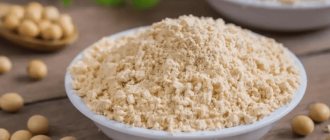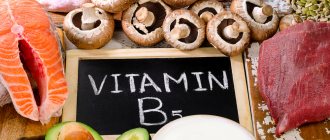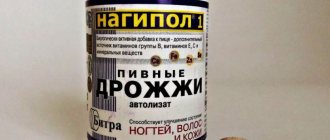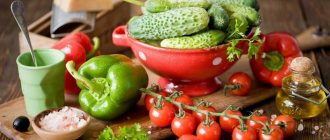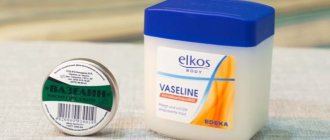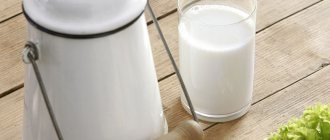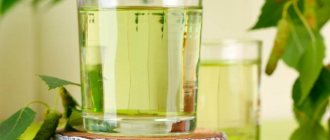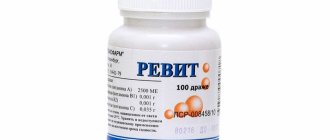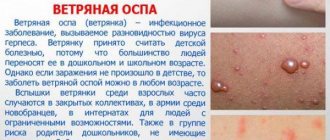Photo: Facebook Hematogen is one of the favorite treats of Soviet children. “Chocolate” from the pharmacy is not only tasty, but also healthy. The basis of Soviet-era hematogen was bovine blood, which provided the iron children needed. However, many do not want to consume animal blood: some are prohibited by religion, others are vegetarians, and some simply do not want to eat animal blood. Find out what modern hematogen is made of and what benefits it brings.
What was hematogen made from in the USSR?
In 1891, in Switzerland, scientist Adolf Hommel gave the world an iron-containing drug, which was called “Hommel’s medicine.” Initially, the medicine contained bovine blood and egg yolk. Indeed, such a drug was sold in the form of a medicine, and then the composition changed, they began to add dried blood to the medicine, and they began to make the hematogen in the form of solid plates.
In 1917, hematogen production was launched in the Soviet Union. In 1951, the composition of hematogen looked like this: 5% dry blood, 0.12% ascorbic acid and the remaining percentage was honey, condensed milk, sugar and molasses.
Side effects
The main component of hematogen is food albumin, which is absorbed through the intestinal walls and can cause irritation in the hypersensitive gastrointestinal tract.
In such situations, the following symptoms may occur:
- flatulence, bloating;
- bowel dysfunction - diarrhea, diarrhea;
- dyspeptic disorders - discomfort, heaviness, sharp pain, belching;
- Disturbance in the genitourinary system – frequent urination.
If such violations are observed, it is necessary to stop using hematogen preparations and be sure to consult a doctor about the correct further choice of hematogen. Perhaps there is no need to choose a hematogen with all kinds of additives, but it is enough to find a classic hematogen with a composition that complies with GOST.
Bovine blood in hematogen: composition of hematogen
Many buyers are not afraid of the fact that hematogen contains animal blood; others, on the contrary, believe that such an additive is not suitable for treatment. So is it true that hematogen is made from blood? In fact, modern products do not contain any bovine blood, only natural components of processed blood or synthetic hemoglobin. Both options give good results and are not dangerous.
It is important to note that the Soviet recipe for the drug did not provide for any bovine blood, only bear blood and then in small quantities. The composition mainly included components with a high content of vitamins C, B and A.
Overdose
Hematogen (benefits and harms have been established as a result of recent research) can be very dangerous if you eat a lot of bars. Even dietary supplements can cause severe metabolic disorders in the body and lead to unpleasant consequences.
Overeating or overdose of hematogen causes poisoning of the body with iron products, which leads to damage to the liver, pancreas and even the heart. Nausea, diarrhea, yellowing of the mucous membrane and sclera of the eyes, tachycardia, and apathetic mood are possible. If you observe such a symptomatic picture, you should immediately consult a doctor.
Hematogen today
Today it is quite difficult to buy a real hematogen; you often come across a handicraft. Thus, in the composition of modern drugs you can find palm oil, which not only does not have any therapeutic effect, but is also harmful to health.
The thing is that hematogen is not a drug, but a food additive that can easily be made in a confectionery factory. Some manufacturers act in good faith and adhere to GOST, but over time there are fewer and fewer of them. Others simply stuff Hematogen with useless additives, which turn it into an ordinary confectionery product.
A high albumin content (at least 3%) indicates a high quality product, because it is this component content that can affect the composition of the blood. It is best to buy products produced by pharmaceutical companies that do not add any fruits and nuts to the hematogen, but supply it with such important components that contribute to the effective absorption of iron.
Description and use
Hematogen is a biologically active supplement (BAA). A particularly important component of the product is albumin (a protein obtained from bovine or pork blood), due to which the dietary supplement is so valued. The remaining ingredients may vary from manufacturer to manufacturer, but usually include sugar, molasses, condensed milk, or vanillin. Also, different types of hematogen may include vitamins, minerals, plant substances, amino acids, enzymes and many other products. The dietary supplement is used for the following purposes:
- Additions to the diet. Hematogen contains many macro- and micronutrients that not all people receive from food.
- Maintaining general health. Replenishes vitamin B12 and iron in the blood. Iron is an essential mineral that the body needs to produce red blood cells and maintain health. Vitamin B12 is important for growth, cell production and nerve function. Vitamin C improves the absorption of iron from the stomach. Gastric concentrate (from pig stomach) improves the absorption of vitamin B12.
- Snack. If you haven’t prepared anything for lunch and your stomach is growling, you can eat hematogen for the first time. It is inexpensive and very nutritious.
- A natural replacement for store-bought sweets. This dietary supplement is perfect for children, as a tasty treat for tea, and it will bring many benefits to the body.
Benefits and contraindications
The composition of hematogen has a beneficial effect on the human body. By replenishing the body with iron, it increases hemoglobin levels, thereby stimulating the blood, and improving the overall well-being of a person. It also contains minerals and such an important nutrient for humans as protein. Doctors especially recommend Hematogen for those who suffer from anemia (iron deficiency).
Hematogen also has a high biological effect, so it is recommended for those who:
- blurred vision;
- detected myopia;
- the stability of the functioning of the retina of the eye is impaired;
- decreased level of red blood cells in the blood;
- skin diseases;
- peptic ulcer;
- hair loss begins.
Doctors also recommend Hematogen for those who live in places with poor ecology, have poor nutrition, after operations and long-term illnesses, during pregnancy and after the birth of a child.
But not everyone can use hematogen, as it is contraindicated for:
- lack of insulin;
- increased body weight;
- varicose veins;
- unstable metabolism;
- children under 3 years old.
Ingredients and calories
Initially, hematogen consisted of whole bovine blood, but since the middle of the last century, production technology has changed somewhat, and albumin was added. This is a protein that has been extracted from purified bovine blood. This component contains a lot of iron, which quickly compensates for the deficiency of this element in the body. The protein is ready to be added in powder form. According to the quality requirements for hematogen, it must contain the following products:
- 5% albumin;
- 40% sugar;
- 30-35% condensed milk;
- 17-25% starch syrup;
- vanillin.
But now manufacturers may not follow Soviet GOSTs; they often change the recipe at their own discretion. Therefore, before purchasing this product, it is recommended that you carefully read its composition.
Normal Hematogen must be manufactured by pharmaceutical companies , but there are bars that are manufactured by confectionery companies without added albumin. Instead, they add nuts, seeds, chocolate, etc. to the composition. This composition only increases the calorie content, which is not entirely low even without additives and averages 350 kcal per 100 g of product. In addition, 75g of carbohydrates, 6g of protein and 3g of fat are consumed per 100g of bars.
Hematogen for children
Pediatricians advise starting to give Hematogen to children starting at the age of three, 35 g per day. Its benefit for the child’s body is that such a food supplement counteracts the development of anemia, makes the immune system work harder, accelerates the production of red blood cells when they are deficient, and supplies cells with oxygen. It also provides protection against anemia, improves metabolism, promotes vision development, and improves the functioning of the respiratory and digestive systems.
The famous children's doctor Komarovsky emphasizes that hematogen is not a medicine, it is just a food supplement and it will not help with anemia; it requires taking special medications.
Foreign doctors have a negative attitude towards hematogen; they believe that during the period of agony the animal experiences fear and stress hormones enter the bloodstream, which can cause nervousness and impair memory.
Tips for choosing a hematogen
Which hematogen is better to choose?
These tips will help you choose the right and safe product for your health:
- It is better to buy dietary supplements at a pharmacy, since this point of sale has more stringent regulatory requirements for product storage (SanPiN 2.3.2.1290-03).
- The albumin mass should be 2.5% of the hematogen mass.
- Inspect the packaging carefully. It must not be damaged.
Composition of the drug
The main component is black food albumin (hereinafter referred to as NPA), which performs several functions, for example: stimulating hematopoiesis; support of blood osmotic pressure; transportation of substances.
Important! PPA is the dried blood of farm animals (cattle).
In addition, this drug contains other elements, such as:
- Amino acids – ensure the absorption of the drug without irritating the walls of the stomach.
- Carbohydrates, namely dextrin, sucrose, glucose, maltose.
- Fats (lipids) are of animal origin or in the form of fat-soluble vitamins.
- Iron is easily absorbed in the digestive system. The main protein is hemoglobin, which transports oxygen to all tissues.
- Vitamins A and C. The first group of vitamins is part of rhodopsin, which is necessary for the normalization of vision. Vitamin C (ascorbic acid) is involved in metabolic processes and the formation of collagen and adrenaline.
- Minerals, namely: potassium, chlorine, sodium.
- Additional substances to give the bar taste and smell, for example: molasses; condensed milk; coconut; sucrose; vanillin; chocolate; nuts; jam; raisin; honey.
Important! At the moment, it is difficult to find high-quality Hematogen, since manufacturers add synthetic products to the composition. Therefore, before purchasing, you need to carefully study the composition of such a drug.
Nutritional value and beneficial properties
An iron bar is a high-calorie product - 350 kcal in a 50-gram bar. The lion's share in the structure of the product is carbohydrates - three quarters of the volume due to sweet additives. Six grams come from proteins and three grams from fats. Vitamins, amino acids and nutrients make the product useful for the following states of orgasm:
- Metabolic disorders.
- Blood loss after injuries and surgery.
- Visual impairment.
- Decreased immunity.
- Slowing children's growth and weight loss.
- Hypovitaminosis.
- Physical and psychological stress.
- Decreased concentration and memory.
In sports nutrition, hematogen is valued not only for its protein composition. It contains glycogen. Sports doctors recommend consuming easily digestible carbohydrates immediately after strength training. 25 grams of “pharmacy chocolate” will fill the energy deficit after physical and emotional stress. Protein bars and whey protein shakes continue to be a complete source of protein.
Analogs
Hematogen analogues are drugs containing iron prescribed for iron deficiency anemia. But these drugs are not dietary supplements; their use must be strictly dosed by a doctor after passing certain tests indicating the need for their prescription.
The following drugs have pharmacological properties similar to hematogen:
- Aktiferrin - drops for internal use, as well as syrup and capsules.
- Fenyuls - capsules with granules, available without a prescription.
- Ferro-Folgamm - capsules, wider pharmacological action than hematogen.
- Ferro-vital is a chewable tablet and is not a medicine.
- Ferrovit - coated tablets, for children in the form of syrup, available without a prescription.
Hematogen was and remains an indispensable dietary supplement, based on recent research, a very tasty medicine for anemia caused by a lack of iron in the body, bringing more benefit than harm.
However, the work of this unique product must be helped - do not drink coffee and black tea, which interfere with the absorption of the active substances of the hematogen. It is gradually recommended to diversify your diet with green teas. For the same reason, you should not get carried away with chocolate and fried foods. Hematogen is ideal for supporting the body in a stressful modern life.
Treat or medicine
Upon careful consideration of this dilemma, no one can give a direct answer. Hematogen has a powerful hematopoietic effect, it contains a large amount of iron and is considered an excellent prophylactic agent. Thus, treating any diseases with hematogen will not lead to the desired result, and vice versa, consuming it instead of sweets will lead to quite serious negative consequences.
How can you find out whether hematogen is a treat or a medicine and what are the norms for taking it? A couple of squares of hematogen tiles will not harm the body, which cannot be said when eating two or three tiles daily when trying to combat iron deficiency.
Photo of a real hematogen
Drug interactions
When taking Hematogen and its analogues, it is necessary to refrain from consuming other vitamin complexes - hypervitaminosis is possible with subsequent damage to vital organs.
It is not recommended to use Hematogen while taking anti-inflammatory drugs, antibiotics, or heart medications. Hematogen should be perceived and consumed as a separate product, which should not be mixed with others, so as not to interfere with the absorption of each of them.
Indications for use
Hematogen is recommended to be used regularly in the following cases:
- anemia associated with hemoglobin deficiency (there are different types of the disease, the specific diagnosis must be clarified in advance during an examination with a doctor);
- unbalanced diet;
- slow weight gain after weight loss, for example, due to illness or surgery;
- ulcerative pathology, accompanied by bleeding (not always noticeable);
- vision problems;
- bone and/or soft tissue injuries;
- wounds that do not heal over a long period.
